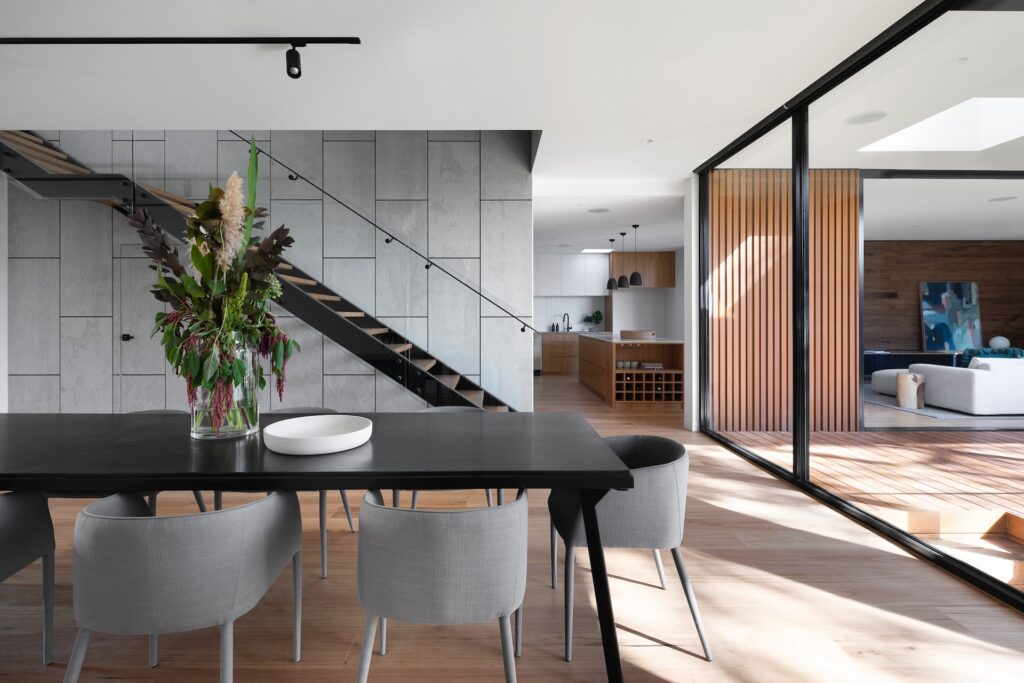When renting out a property, owners can choose from several rental models, each with distinct features and benefits. The most common options include short-term (vacation) rentals, medium-term rentals, and long-term rentals. Each approach offers unique advantages tailored to the owner’s goals and the property’s location.
This guide will delve into the differences between these rental types, outlining their pros and cons. Whether your priority is maximizing revenue with short-term stays or ensuring consistent income with medium- or long-term agreements, understanding these options is key to making informed decisions and optimizing your property’s earning potential.

Short-Term Rental (Alojamento Local - AL)
Short-term rentals, commonly referred to as Alojamento Local (AL) in Portugal, are designed to accommodate guests for stays of up to 30 days. They are especially popular among tourists and short-term visitors seeking flexible, convenient, and often more affordable alternatives to traditional hotel accommodations. These rentals have gained significant traction in cities like Lisbon, Porto, and Algarve, where tourism thrives.
Target Audience
The primary users of short-term rentals are tourists, business travelers, and individuals visiting family or attending events. These guests typically look for properties offering a home-like experience, often with added privacy, kitchens, and unique amenities that hotels might not provide. For visitors who value flexibility and local charm, short-term rentals are a highly attractive option.
Purpose
Short-term rentals are primarily geared toward leisure or business purposes. Whether it’s a family vacation, a solo travel adventure, or a corporate trip, these rentals cater to diverse needs. Property owners who capitalize on this model often target peak tourism seasons or large-scale events in their area, which can yield higher nightly rates.
Regulations
Operating a short-term rental in Portugal involves compliance with the Alojamento Local system. Owners must register their properties with the local municipality and ensure they meet specific requirements, including health and safety standards, adequate insurance coverage, and guest registration with AIMA (Portugal’s Immigration Authorities). In some areas, particularly in high-demand tourist zones like Lisbon and Porto, restrictions have been implemented to control the proliferation of short-term rentals and address housing shortages for locals. Owners should stay informed about municipal regulations to ensure legal compliance.
Taxation
Income generated from short-term rentals is categorized as business income (Category B) under Portuguese tax law. Depending on total earnings, owners may be subject to Value Added Tax (VAT) and must declare their earnings accordingly. Portugal offers simplified tax regimes to ease the administrative burden, but it’s essential for property owners to maintain proper records and understand their tax obligations.
Management
Running a short-term rental demands active and consistent management due to frequent guest turnover. Tasks include marketing the property on platforms like Airbnb, Booking.com, and VRBO, handling guest inquiries, coordinating check-ins and check-outs, organizing cleaning services, and maintaining the property. Many owners hire property management companies to oversee operations, but this can reduce profit margins. Success in this sector often depends on creating an exceptional guest experience, as reviews significantly impact future bookings.
Advantages of Short-Term Rental
- High Income Potential: Nightly rates are typically much higher than those for mid- or long-term rentals, especially in popular tourist destinations during peak seasons.
- Flexibility: Owners can use the property for personal purposes between bookings, making it ideal for those who want occasional access.
- Global Reach: Platforms like Airbnb and Booking.com make it easy to attract a diverse range of international guests.
- Customization: Owners have the freedom to adjust prices based on demand, events, or seasons.
Disadvantages of Short-Term Rental
- Time-Intensive Management: Frequent guest turnover requires significant effort in marketing, communication, cleaning, and upkeep.
- Regulatory Challenges: Licensing and compliance with Alojamento Local rules can be complex, and restrictions in certain municipalities may limit the ability to operate.
- Income Volatility: Earnings can fluctuate greatly depending on seasonal demand, economic conditions, and competition.
- Higher Costs: Operating expenses, including utilities, maintenance, and cleaning, are typically higher than for mid- or long-term rentals.

Mid-Term Rental
Mid-term rentals are an increasingly popular option for property owners and renters alike, offering a middle ground between short-term stays and long-term commitments. These rentals cater to individuals seeking accommodation for 1 to 12 months, often as part of a transitional or temporary arrangement. With the rise of digital nomadism, remote work, and international mobility, mid-term rentals have become a highly attractive option in Portugal.
Target Audience
The typical tenants of mid-term rentals include expats, students, digital nomads, and professionals on temporary assignments. These individuals often seek fully furnished properties with utilities included, as they value convenience and flexibility. For example, an expat relocating to Portugal might opt for a mid-term rental while searching for a permanent home, or a student attending a semester abroad may prefer this option over traditional long-term leases.
Purpose
Mid-term rentals serve as transitional housing for those who need more than a short-term stay but aren’t ready or able to commit to a long-term contract. These rentals are especially appealing in urban areas like Lisbon, Porto, and Faro, where there is a steady demand for temporary housing among international professionals, postgraduate students, and remote workers.
Contracts
Mid-term rental agreements are typically flexible, designed to suit the specific needs of the tenant and the property owner. Contracts can vary in length, terms, and conditions, but they generally include provisions for shorter notice periods compared to long-term leases. This adaptability makes mid-term rentals a convenient option for those with changing circumstances or uncertain timelines.
Taxation
Income from mid-term rentals is reported as rental income (Category F) under Portuguese tax law. Unlike short-term rentals, mid-term properties are not classified as business income, which can simplify tax obligations. While there are no specific tax incentives for mid-term rentals, property owners may still benefit from lower administrative burdens compared to the short-term rental market.
Regulations
Mid-term rentals are subject to less oversight than short-term rentals. Unlike Alojamento Local, mid-term properties are generally not required to obtain specific licenses, as they fall outside the scope of tourism-related legislation. This makes them easier to manage from a regulatory standpoint, especially in areas where short-term rental restrictions are in place.
Advantages of Mid-Term Rental
- Steady Income: Mid-term rentals provide a consistent cash flow without the income volatility of short-term stays.
- Lower Management Effort: Compared to short-term rentals, there is less need for frequent cleaning, guest turnover, and constant communication.
- Broader Appeal: Mid-term rentals cater to a growing demographic of international workers, students, and professionals, ensuring demand in key urban and coastal areas.
- Regulatory Simplicity: With fewer legal requirements than short-term rentals, mid-term arrangements are often easier to manage.
- Fewer Tenant Risks: Tenants in mid-term rentals are typically vetted, and the shorter contracts provide flexibility for both parties.
Disadvantages of Mid-Term Rental
- Moderate Revenue Potential: Mid-term rentals generally yield lower income than short-term rentals due to longer occupancy periods and lower nightly rates.
- Uncertain Demand: The market for mid-term rentals depends on specific tenant demographics, which can fluctuate based on location and economic trends.
- Limited Tax Benefits: Unlike long-term rentals, mid-term leases may not qualify for reduced tax rates or other incentives in Portugal.
- Less Flexibility for Owners: While more flexible than long-term rentals, mid-term arrangements still tie up the property for extended periods, limiting opportunities for personal use or higher-paying short-term bookings.

Long-Term Rental
Long-term rentals are the most traditional and stable form of property leasing, designed for tenants seeking housing for 1 year or more, with contracts often lasting between 3 and 5 years. This model appeals to individuals and families looking for a permanent or semi-permanent living arrangement and provides property owners with consistent and predictable income.
Target Audience
The primary tenants for long-term rentals are residents, families, and individuals who value stability in their living arrangements. These tenants are typically looking for unfurnished or partially furnished properties, as they intend to make the space their home for an extended period. Long-term rentals are particularly appealing to locals and expatriates planning to settle in Portugal with D7 Retirement Visa or D2 Entrepreneur Visa.
Purpose
Long-term rentals are designed to provide permanent housing for tenants. This model is ideal for individuals seeking a reliable and affordable place to live without the transience associated with short-term or mid-term arrangements. For property owners, long-term rentals ensure steady income with minimal turnover, making it a low-maintenance investment option.
Contracts
Long-term rental agreements in Portugal are governed by the Urban Lease Law (NRAU), which outlines the rights and responsibilities of both landlords and tenants. These contracts provide legal protections, including rules on rent increases, eviction procedures, and lease renewal terms. The law strikes a balance between safeguarding tenants’ housing stability and ensuring that landlords can maintain fair control over their property.
Taxation
Income from long-term rentals is classified as rental income (Category F) under Portuguese tax law. Owners may benefit from tax incentives, such as reduced tax rates for longer lease terms, which are designed to encourage stable housing solutions. Proper documentation of income and compliance with tax regulations are essential for landlords to take advantage of these benefits.
Regulations
Unlike short-term rentals, long-term leases are subject to fewer regulatory requirements. There is no need for special licensing, as these agreements focus on providing housing rather than catering to tourism. This simplifies the process for property owners, reducing administrative burdens and ensuring compliance with housing laws.
Advantages of Long-Term Rental
- Stability: Provides a consistent and predictable income stream over extended periods.
- Low Management Effort: With longer leases, landlords spend less time finding new tenants, coordinating move-ins and move-outs, or managing frequent maintenance requests.
- Tenant Retention: Long-term tenants are more likely to take care of the property as they treat it as their home.
- Tax Benefits: Long-term leases in Portugal may qualify for reduced income tax rates, increasing net profitability.
- Simplified Regulations: Fewer legal requirements compared to short-term rentals make long-term leasing less complex to manage.
Disadvantages of Long-Term Rental
- Lower Income Potential: Monthly rent is generally lower compared to short-term or mid-term rentals, leading to less overall profitability.
- Tenant Risks: Eviction processes can be time-consuming and challenging if tenants fail to meet their obligations, such as paying rent.
- Limited Flexibility: Long-term leases restrict the owner’s ability to use the property for personal purposes or adapt to changing market opportunities.
- Wear and Tear: Prolonged occupancy can result in higher maintenance costs over time.

Short, Mid or Long-Term Rental: Wich is Better?
There is no one-size-fits-all answer to which rental model—short-term, mid-term, or long-term—is better. The best choice depends on your goals, location, property type, and market demand.
If maximizing income is your priority and your property is in a tourist hotspot, short-term rentals may be ideal, though they require more effort and regulatory compliance. For a balance of steady income and manageable turnover, mid-term rentals work well, especially in cities popular with expats or professionals. If stability and minimal management are your focus, long-term rentals offer consistent income with fewer demands.
Align your rental strategy with your investment goals and local market conditions to ensure profitability and long-term success.
Why to Work With us?
Navigating Portugal’s rental market can be challenging, especially if you’re unfamiliar with the local laws and customs. That’s where Portugal Residency Advisors® steps in to help.
With in-depth expertise in the Portuguese real estate industry, we offer comprehensive, end-to-end services to streamline the process of renting out your property. From legal guidance and tax compliance to property management and market insights, we ensure everything is handled with precision and care.
Maximize the potential of your property in Portugal without the hassle. Contact us today, and let us take care of the details while you enjoy the rewards!
Frequently Asked Questions About Short, Mid and Long-Term Rental
What are the main types of rental options in Portugal?
Portugal offers three primary rental options: short-term rentals (up to 30 days, typically for tourists), mid-term rentals (1 to 12 months for expats, students, or professionals), and long-term rentals (1 year or more for permanent housing). Each has different regulations, income potential, and management requirements.
Do I need a license to operate a short-term rental in Portugal?
Yes, short-term rentals must be registered under the Alojamento Local (AL) system. This involves obtaining a license, ensuring compliance with safety standards, and meeting local regulations, which may vary depending on the municipality.
Are there tax benefits for long-term rentals in Portugal?
Yes, long-term rentals may qualify for reduced tax rates depending on the lease duration. For instance, leases over two years can benefit from reduced taxation under Portuguese law, making this an attractive option for landlords seeking stability.
What taxes apply to rental income in Portugal?
Rental income is generally taxed under Category F (rental income) or Category B (business income) for short-term rentals. Tax rates and applicable deductions vary based on the type of rental and the owner’s residency status.
Can I rent out my property while living abroad?
Yes, but you may need to designate a tax representative in Portugal and comply with local tax laws. Many foreign property owners use property management companies to handle the day-to-day operations and legal requirements.
Are there any restrictions on short-term rentals in Portugal?
Yes, all the costal area of Portugal had new short-term rental licenses suspended to address housing shortages for locals. It’s essential to check the local regulations before operating.
What should I include in a rental agreement for mid- or long-term leases?
Rental agreements should include key terms such as the lease duration, rental price, payment terms, security deposit, tenant obligations, and conditions for renewal or termination. All contracts must comply with the Urban Lease Law (NRAU).
How can I attract tenants to my rental property?
Ensure the property is well-maintained and appropriately furnished for the target audience. For short-term rentals, use platforms like Airbnb or Booking.com. For mid- and long-term rentals, advertise through local real estate agencies, online portals, or expat communities.
How much can I charge for rent in Portugal?
Rental prices depend on the property’s location, size, and amenities. Urban areas like Lisbon, Porto, and Cascais command higher rents, especially for furnished properties. Short-term rentals typically yield higher nightly rates but are seasonal.
Can I manage my rental property myself, or should I hire a management company?
While you can manage the property yourself, hiring a property management company can save time and ensure compliance with regulations, especially if you live abroad or have multiple properties. They handle bookings, tenant communication, maintenance, and legal matters.




